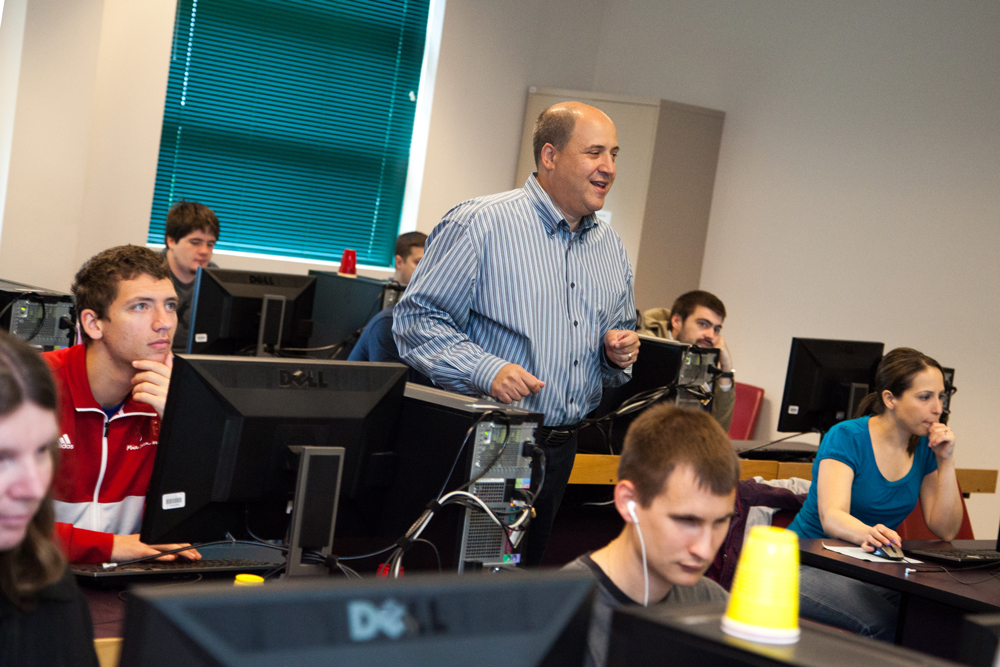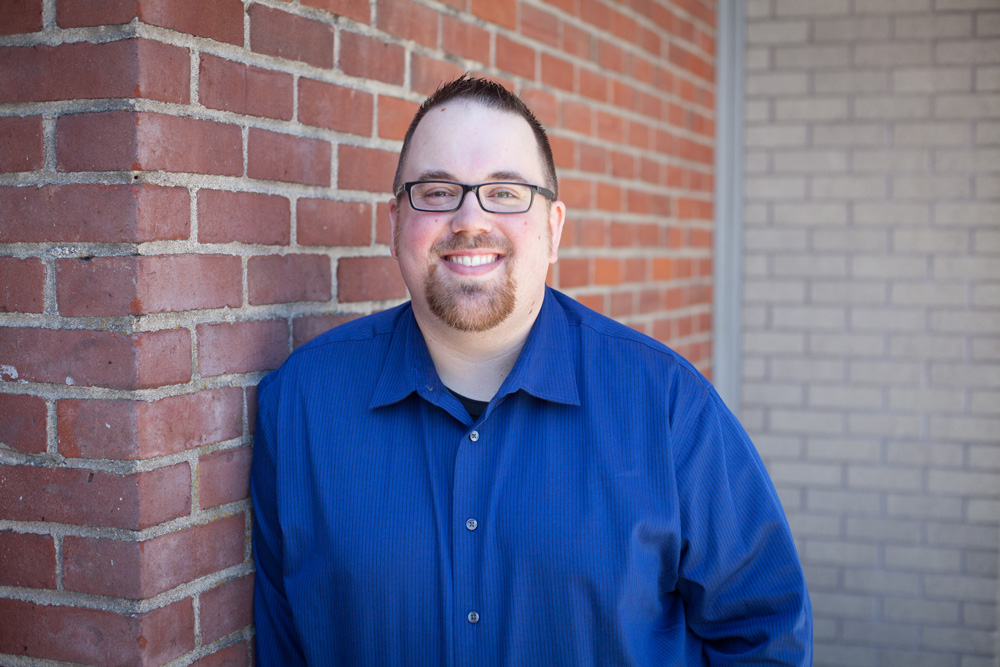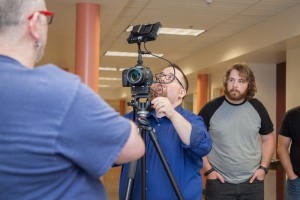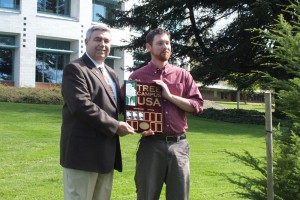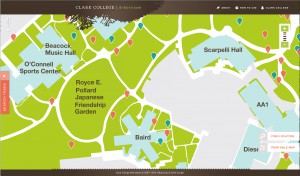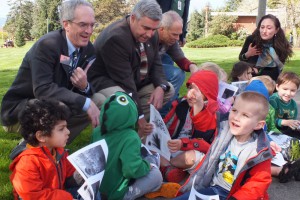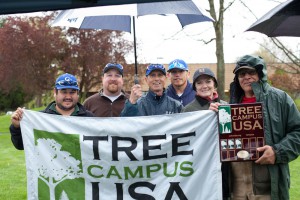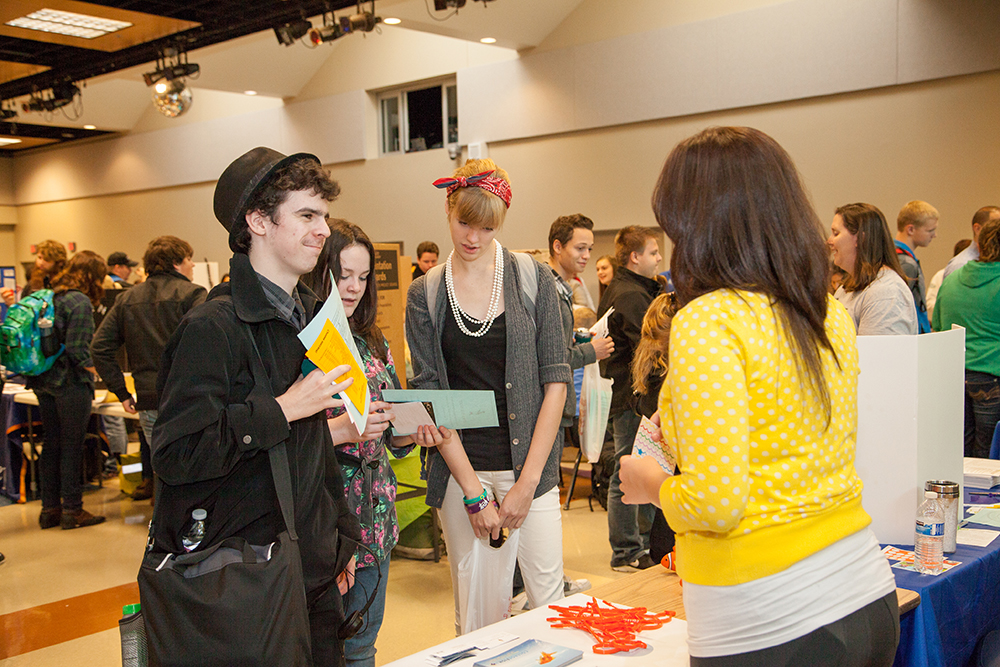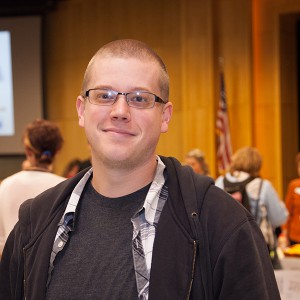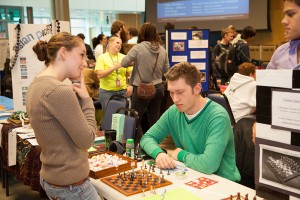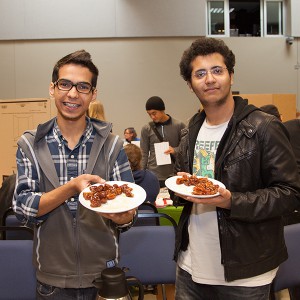Teaching accessibility
Clark College computer technology instructor Bruce Elgort recently received grants from the national organizations Teach Access and the Partnership on Employment & Accessible Technology (PEAT), as well as the Washington State Board for Community and Technical Colleges (SBCTC), to incorporate accessibility principles into computer science curriculum.
Elgort was just one of 13 faculty members across the nation to receive this grant and the only instructor from a community college to do so. He plans to use the funds to enhance his current curriculum so that it expands its teaching of Universal Design principles.
“We teach accessibility in our HTML classes—you know, ‘add a description to all your images so people using screen-reader technology know what they are,’” Elgort said. “It’s time to start taking accessibility further. It’s time to create forms for people with cognitive disabilities, or physical disabilities that go beyond visual impairment.”
The topic is deeply personal for Elgort, who is visually impaired himself. “I am a user of accessibility,” he said. “I am someone who is challenged as a user of technology.”
Funded by Teach Access and PEAT, the Teach Access Curriculum Development Award totals $5,000. The SBCTC is matching that grant with an additional $5,000. Elgort plans to use the funds to develop curriculum enhancements over the summer, and have them ready to share with other faculty in the fall.
“We’re extremely fortunate to have a faculty member like Bruce working at Clark College. His strong commitment to ensuring everyone can use technology is commendable. With the Teach Access and PEAT grant, which SBCTC is matching, Bruce can impact an entire industry by making sure future web developers are equipped to develop accessible technology as soon as they enter the field,” said Jess Thompson, program administrator for accessible technology initiatives at SBCTC.
About Bruce Elgort
Bruce Elgort began his career as an electrical engineer and then moved into the world of enterprise information technology. He was responsible for designing and developing collaborative computing solutions to serve global businesses. Elgort also started one of the largest open-source communities for IBM’s Collaboration Software division. He is a popular speaker at conferences and industry events. As an entrepreneur, he created the award-winning IdeaJam idea-management software. Elgort began teaching at Clark College in 2013 and has earned the college’s prestigious Exceptional Faculty Award in 2014 and 2018.
About Clark College
Located in Vancouver’s Central Park and serving more than 12,000 students per quarter, Clark College is Southwest Washington’s oldest public institution of higher education. The college currently offers classes at two satellite locations: one on the Washington State University Vancouver campus and one in the Columbia Tech Center in East Vancouver. Additionally, its Economic & Community Development program is housed in the Columbia Bank building in downtown Vancouver.
About Teach Access
Teach Access is a unique collaboration among members of higher education, the technology industry and advocates for accessibility, with a shared goal of making technology broadly accessible by infusing accessibility into higher education, with enhanced training and collaborations with people with disabilities. Teach Access includes members from leading tech companies, academic institutions and disability advocacy organizations and other non-profit institutions. Teach Access operates as a fiscal sponsorship fund at the Silicon Valley Community Foundation (SVCF). To learn more visit teachaccess.org or email info@teachaccess.org.
About the Washington State Board for Community and Technical Colleges
The Washington State Board for Community and Technical Colleges is led by a governor-appointed board and provides leadership, advocacy, and coordination for Washington’s system of 34 public community and technical colleges. Each year, about 374,000 students train for the workforce, prepare to transfer to a university, gain basic math and English skills, or pursue continuing education.

